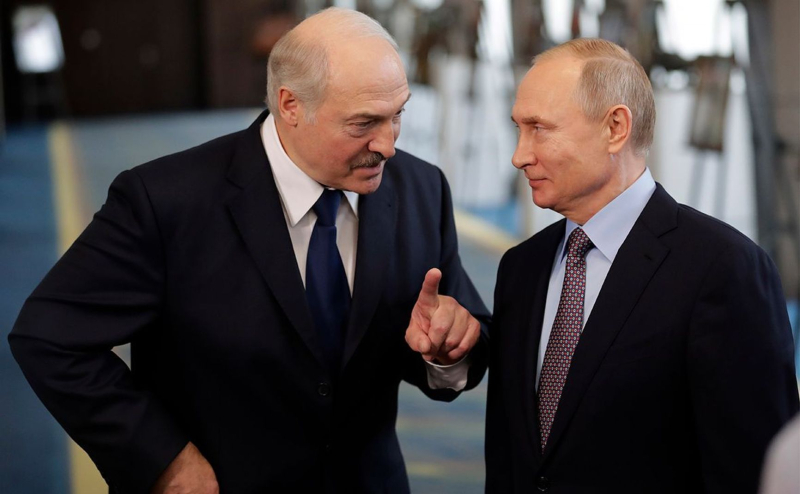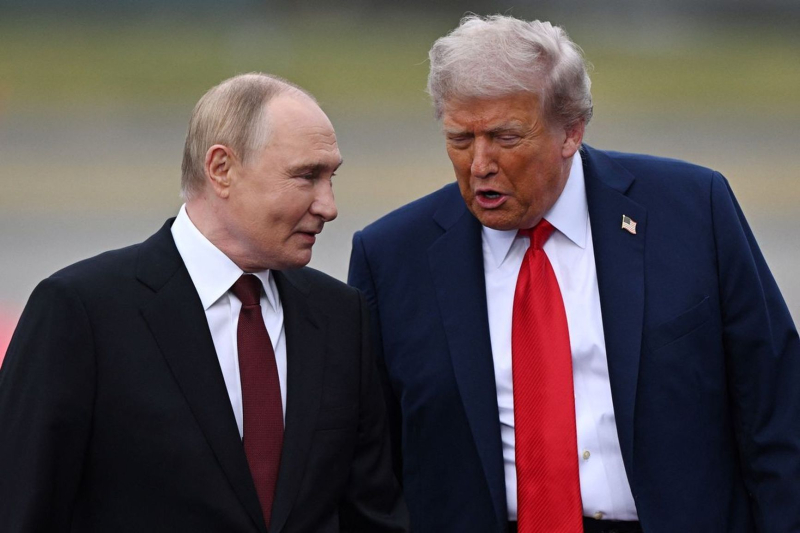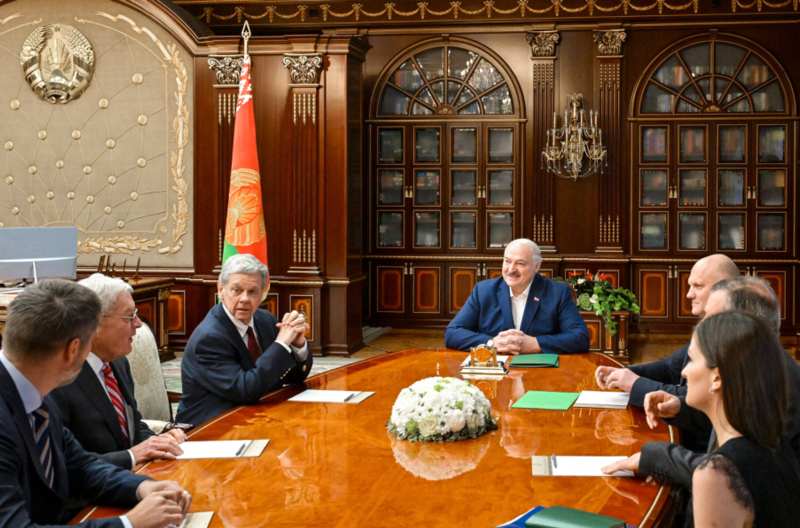The younger, older brother
Lukashenko turns 71 on Aug. 30, having spent 31 of those years ruling Belarus. He became president in 1994, soon after the post was created, and has not let go of power for a single day (even if many countries stopped recognizing him as president after 2020).
Lukashenko is two years younger than Putin and often calls the Russian ruler his older brother. Yet as a “head of state,” Lukashenko is the senior: 31 years of unbroken rule compared with Putin’s 25 as the most powerful figure in Moscow. And unlike Putin, who temporarily handed the presidency over to Dmitry Medvedev from 2008-2012, Lukashenko has never surrendered his hold on power — not even symbolically.

Over their decades in office, Lukashenko and Putin have met countless times, both one-on-one and at multilateral summits. They have quarreled and reconciled, but never fully broken off relations. For Lukashenko, the allure of Moscow is above all about money: cheap loans, cheap energy, and trade preferences.
He invested heavily in turning the project of a Russia-Belarus Union State into an endless process — one with a serious budget. This endless “construction site” is designed in such a way that it always requires new funding allocations, but is never actually completed.
Geopolitical polygamy
For Lukashenko, successfully bluffing Moscow has always required that he maintain reasonably close ties with the West, which he managed to do for years. His relations with the European Union and the United States rose and fell, but they never collapsed completely. The dictator always knew the limits, and those around him understood the strategic importance of keeping open plenty of space for maneuver — Russia’s fraternal embrace could choke Belarus if Minsk ever allowed Moscow to get too close.
Until the 2020 presidential election, this strategy mostly worked. There were periods of isolation, but they were not complete. Spats would blow over, and Lukashenko would again meet Western officials both at home and abroad. Before 2020, Minsk served as a venue for talks on resolving the conflict in eastern Ukraine and as a platform for debates on pan-European security. The chief advocate of geopolitical polygamy was Belarusian Foreign Minister Vladimir Makei, a figure disliked in Moscow for that very reason.
However, in August 2020, the old structure collapsed. Lukashenko jailed prominent rivals even before the election, and when that failed to quell the crowds coming out in support of Sviatlana Tsikhanouskaya, he resorted to brutal crackdowns on protesters and filled prisons with political detainees. Lukashenko ultimately held onto power, but his actions, including the forced landing in Minsk of a Ryanair flight carrying opposition blogger Raman Pratasevich, triggered sweeping Western sanctions.
After that, Lukashenko was left with only an eastern foreign policy vector. This allowed Putin to make Minsk an accomplice in the Russian attack on Ukraine, using Belarusian territory as a crucial staging ground for the invasion. Lukashenko’s game of geopolitical polygamy was over. Symbolically, in November 2022, Belarus’s chief advocate of a multivector policy, Foreign Minister Makei, died suddenly.
Friend of an enemy
Until 2025, it seemed Lukashenko was firmly locked in Russia’s embrace. His conflict with the West was intensifying, and Belarus had stationed Russian nuclear weapons on its soil. But the Belarusian leader’s desire to play on multiple boards never went away.
In 2024, Lukashenko began gradually releasing political prisoners — his main bargaining chip in endless haggling with the West. In June 2025, Keith Kellogg, the U.S. president’s special envoy for Ukraine, visited Minsk. The meeting led to the release of Siarhei Tsikhanouski, who had been in jail since the spring of 2020 — months before the disputed presidential election that August.
It turned out Kellogg’s June 2025 visit was far from the first contact between the U.S. and Putin’s closest ally. Bridges with Belarusian authorities were already under reconstruction in late 2024, when U.S. deputy assistant secretary of state for Eastern Europe Christopher Smith made contact with Minsk, conversations that ultimately led to a Smith-Lukashenko meeting with in February 2025, shortly after Trump was sworn in as president. In April, another U.S. delegation visited Minsk, this time led by Trump lawyer John Coale, who later said he drank vodka and ate potato pancakes (“draniki”) with Lukashenko. In June, Coale accompanied Kellogg during the envoy’s trip to the Belarusian capital.
Trump lawyer John Coale drank vodka and ate potato pancakes with Lukashenko in Minsk.
Lukashenko made no secret of his delight at escaping his unpleasant isolation. By freeing political prisoners, he was also thinking of his own benefit. In talks with the Americans, the issue of lifting sanctions — which had squeezed the Belarusian economy and made Minsk more dependent on Moscow — was raised.
Washington, for its part, had its own reasons for engaging with Lukashenko. The release of detainees, including American citizens, was important — especially given Donald Trump’s obsession with embodying the image of a peacemaker and liberator — but it was not the only interest.
Lukashenko is a bearer of unique knowledge about Putin. No other world leader has spent as much time with the Russian dictator, and the U.S. seems to have determined that this kind of expertise was valuable.
Lukashenko is a bearer of unique knowledge about Putin, and the U.S. seems to have determined that this kind of expertise was valuable.
It is already known that Washington used Lukashenko’s contacts with the Kremlin to help prepare the Alaska summit. Judging by how the recent meeting between Putin and Trump was staged, the U.S. took some of the Belarusian leader’s advice — at the very least, his suggestion to show respect toward the Russian leader. Still, it so far looks like the U.S. got less than it hoped for, as the summit did not stop the war in Ukraine.

Lukashenko and Putin, however, gained quite a lot from the diplomatic game with the United States, reinforcing the international legitimacy of both men.
Putin secured a personal meeting with the U.S. president — and a meeting about Ukraine without Ukraine. Lukashenko, for his part, got a phone call from Trump, a deliverable that is convertible to geopolitical currency.
For the first time in five years, Lukashenko has a real chance to restore relations with the West, and past experience suggests he will seize it. The West, in turn, will use him to put pressure on Moscow, which cannot stand to see its satellites flirt independently with the very players it prefers to deal with directly. Lukashenko appears to be back in the middle of things.



